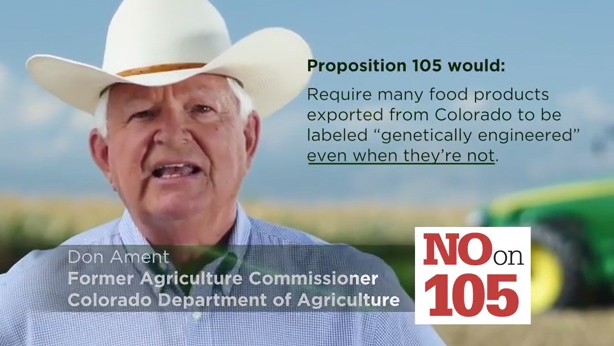
Proposition 104 requires school boards to allow the public to see negotiations on collective bargaining agreements, or union contracts.
Colorado has rejected a proposal to allow casino gambling at a horse racetrack in suburban Denver.
Millions of dollars was spent on the ballot measure, which carries the promise that the taxes raised will funnel $114 million a year to public schools.
The expansion would have applied only to Arapahoe Park in Aurora to start. The campaign was supported by Rhode Island's Twin River Worldwide Holdings, which owns the Arapahoe Park.
Opponents said the measure could hurt revenue at Colorado's existing casinos.
Amendment 68 was the most expensive ballot measure in the nation outside California, with opponents and supporters spending more than $33 million combined.
'Personhood' amendment fails
Colorado voters have rejected a proposal to add "unborn human beings" to the state's criminal code, a measure that some feared could ban abortion.
It was the third attempt in recent years to grant "personhood" to the unborn.
Voters across most demographic groups rejected Amendment 67 in Tuesday's election, according to preliminary exit poll results. It was rejected by voters who identified as Democrats and independent or other. Republicans were about split.
The measure also had significant opposition among those who opposed abortion and who identified as evangelicals or born-again Christians.
The personhood issue was an important part of the U.S. Senate race, with Sen. Mark Udall highlighting congressman Cory Gardner's past support of measures to grant legal rights to fertilized eggs. Gardner voters were about split on the issue.
Genetically modified food labels proposition fails
Colorado voters have rejected mandatory labels on many foods that have been genetically modified, known as GMOs.
Proposition 105 would have required modified foods sold in grocery stores to carry labels that say "Produced With Genetic Engineering."
The measure would not have applied to restaurants, and it excluded meat, dairy and alcohol products.
Opponents included major food companies like PepsiCo, and they spent some $11 million to defeat the GMO labels. They said the labels would confuse shoppers and burden farmers.
Vermont is the only state to require GMO labels, though the matter is in court. Other states have approved labels conditional on neighboring states requiring them, and Oregon voters were considering a requirement Tuesday.








